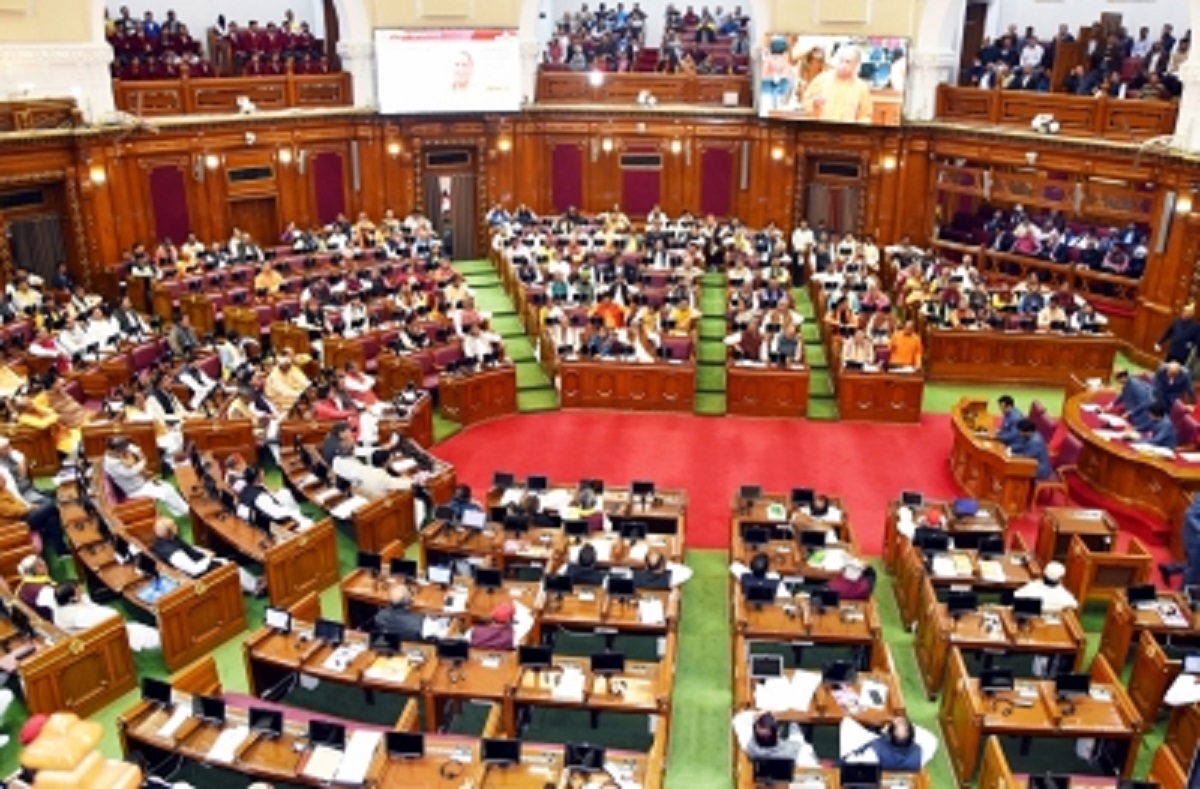Mahakumbh all set for four new world records
After the end of the Magh Purnima bathing, the Mela Authorities have started the preparations to set new milestones at the Mahakumbh with the arrival of a team of Guinness Book of World Records.
When the budget session of the UP assembly begins on Monday, members will find a new rule book.

[Photo:IANS]
When the budget session of the UP assembly begins on Monday, members will find a new rule book.
After almost 65 years of its existence, nearly 70 per cent of the rules have either been revised or changed.
Advertisement
The new Rules of Procedure and Conduct of Business of the UP Legislative Assembly will be tabled in the assembly during the upcoming Budget Session and it is likely that they will be accepted and implemented within this session itself.
Advertisement
Speaker Satish Mahana said that the circumstances in 1958 when the rulebook was made were vastly different from the current scenario.
“In 1958, there were no tablets, computers or digitalisation. To send a message to an MLA, first it would be sent to the district magistrate concerned, who would then look for the MLA and then hand it over to them. Now communication takes place within minutes,” he said.
He said that the changes proposed will increase the efficiency of the House and eventually benefit not just the MLAs but also people of the state.
Pradeep Dubey, principal secretary, Vidhan Sabha, who has worked extensively on the new rulebook, said that the original rulebook was in English which had then been translated into Hindi.
The new book has been drafted in Hindi and will be translated into English. And it is in such a simple language that even a first-time MLA will be able to understand.
“We needed to change the rule to synchronise with the Electronic Vidhan. For instance, earlier questions could not be made public before they were answered in the House. Now, irrespective of the time they are taken up, they will be uploaded on an MLA’s tablet at 10.30 a.m., in anticipation of the Question Hour at 11 a.m. However, legislators will be advised that these are not to be made public till the question is answered,” he said.
In another change, starred questions that cannot be taken up on a particular day for any reason will be unstarred and the government will have to respond to them. Currently, 20 starred questions are earmarked to be taken up each day but often they are not answered due to long supplementary questions, protests etc since the Question Hour is the first business of the day.
MLAs can also file their questions at any time of the day or night.
Mahana has also introduced a provision to shift the Question Hour, on the discretion of the Speaker, to any other time of the day in case it is not possible to hold it as per schedule from 11 a.m. to 12.20 p.m.
The number of supplementary questions is being reduced to two per question since often too many supplementary questions end up taking up most of the time of Question Hour.
Among other proposals, calling attention motion, adjournment motion, point of order and other notices would earlier be filed on the same day. Now, there is a provision to submit them a day earlier, after the end of that day’s session.
Some committees will have the power to take the final call on some issues. Actions like reprimand, censure etc can be cleared by the committee directly. And where serious action is required, like suspension, then the matter will be taken to the House.
Advertisement